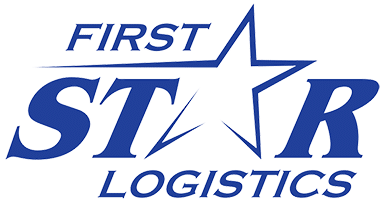Freight transport is one of the top industries and is critical to industries worldwide. A freight broker plays an important role in freight transport. Being a freight broker can be a lucrative, fulfilling, and flexible career. To become a freight broker, a person needs to gain experience in the industry, attend online or in-person training classes, begin at an entry-level freight broker position to fine-tune the skills, register a brokerage company, apply for a motor carrier authority using form OP-1 at the Federal Motor Carrier Safety Administration (FMCSA), hire a process agent, secure a bond, purchase insurance, take steps to adhere to state corporate and tax regulations, and create a business plan. Once these steps are completed and the business plan is finalized, financing can be secured, broker contracts can be created, shippers and carriers can be identified, and rates can be set. Finally, work can begin! If all these steps sound overwhelming and intimidating, keep reading to find a simpler way to become a freight broker.
What is a freight broker?
Almost everything needs to be shipped, and major shipments are coordinated by freight brokers. Freight brokers are the transportation intermediaries. Freight brokers find work for truck drivers and negotiate the highest value transport for shippers. Freight brokers help shippers find appropriate carriers at competitive prices. Using a freight broker allows shippers to save money and allows carriers to focus on what they do best. While it is possible to have a stand-alone freight brokerage company, freight companies often have in-house freight brokers who contract out to trucking agents for client and employee interfacing.
What is the difference between a freight broker and trucking agent?
Freight brokers and trucking agents play different roles in the complex world of shipping coordination processes. A trucking agent is sometimes referred to as a freight agent. Freight agents are independent contractors who work for freight brokers and work directly with clients and truck drivers. Unlike brokers, agents are not licensed, and they are not typically a part of a parent freight company. To learn more about the work of trucking agents, visit the First Star Logistics’ guide.
Freight Broker Salary
According to many surveys, the average national freight broker salary in the United States is just over $62,000 annually. In addition to salary, freight brokers can earn commissions. The average national commission is around $28,000 per year. While freight brokers can work anywhere in the country, those who work in larger cities typically earn more than those who are based in rural areas. Experience and tenure in the field also lead to pay increases. There are many opportunities to increase income.
How to Become a Freight Broker
Becoming an independent freight broker requires some relevant shipping industry experience, months of preparation, equipment, software, marketing, insurance, licensure, and industry connections. Starting an independent brokerage firm can be labor intensive and costly.
How to Get a Freight Broker License
To get a freight broker license, a person must contact the FMCSA and apply for a motor carrier authority. The application fee is $300. Form OP-1 must be completed and submitted. It can be filled out online to receive the grant letter and motor carrier (MC) number immediately. Separate forms and fees are required for licensing to transport non-household goods and household goods. The grant letter and MC number are not the license, but they are proof that the application is in progress.
Freight Broker Training
Freight broker training programs are often provided by brokerage firms to inexperienced, prospective employees. The curriculum includes lessons on the industry and entrepreneurial skills. It is important to learn specific aspects of the trade in a classroom setting; however, the best training is gained through practice. Wherever the training occurs, a freight broker needs to learn about federal and international regulations, best practices, infrastructure logistics, and more.
Can I become a freight broker with no experience?
Although experience in the cargo transportation industry and entrepreneurial skills are incredibly useful to becoming a freight broker, it is possible to become a freight broker without direct experience. In this case, it is critical to partner with a parent freight company that has a robust brokerage training program. With dedication, hard work, and proper training, it is possible to go from novice to expert. In addition to providing training, the parent freight company may hire in-house brokers and oversee many of the logistics and costs that serve as barriers to opening independent firms. Additionally, parent freight companies come with extensive networks of clients, shippers, freight agents, and truck drivers.
Freight Broker Jobs
There are many opportunities for freight broker jobs, but the most accessible, fulfilling, and lucrative path is with a trusted freight company that can provide training, support, licensing, and insurance. First Star Logistics has been a leader in the field for over 60 years and is currently seeking motivated individuals to join their freight broker team. To learn more and apply, contact First Star Logistics today!



